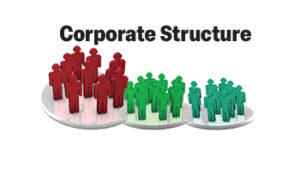The more organized and prepared you are when you meet with a lender, the better off you will be.
By David Adams
You need to purchase some new equipment and have determined that you want to finance it. Great choice, as financing preserves the cash you have and helps build business credit. What do you need to get that loan for your waste equipment, and how do you improve your chances of getting approved?
There are a few things you should do to speed up the approval process. We will discuss each of these in detail.
• Get your financials together
• Determine why you are purchasing the equipment
• Know the equipment you are buying
• Provide revenue and cost projections
• Think about insurance
• Be open and honest with your lender

Image courtesy of Commercial Credit Group.
Get Your Financials Together
The more organized and prepared you are when you meet with a lender, the better off you will be. For an established company, you will need tax returns, profit and loss statements, balance sheet, bank statements, or audited financial statements (if available). Additionally, a debt schedule—the list of your long-term debts, balances, terms, and monthly payments—will be very helpful, especially if any of that debt is for real estate. This will help the underwriter better understand the true monthly cost of your current debt and how much cash flow is available to cover additional purchases. For a newer company, in addition to the items noted previously, you may also need a personal financial statement and resumé for the company principals as well as projections or a business plan.
Regardless of the age of the company, the lender will need to understand your corporate structure—S-Corp, C-Corp, LLC, partnership, or sole proprietorship (see Corporate Structure sidebar). Corporate structure has an impact on which party or parties can legally sign on behalf of the company, and, therefore, enter into a loan agreement. For a corporation, this information is contained in the Articles of Incorporation. For an LLC, it is in the operating agreement and articles of organization.

Sole Proprietorship: In a sole proprietorship, the owner is an individual who is personally responsible for all aspects of the business, including contractual obligations. As the sole decision-maker, the owner has the authority to enter into contracts on behalf of the business. The owner may also bear personal liability for any debts or legal issues arising from these contracts. Sole proprietors report business income on their personal tax returns.
Limited Liability Company (LLC): In an LLC, ownership is vested in one or more members. Authority to operate the business and enter into contracts is generally set forth in an operating agreement, which describes a company’s internal structure, powers, and limitations and operations. An operating agreement usually specifies who has the authority to enter into contracts and whether the company can enter into certain type of transactions. Depending on the agreement, all members might share this authority, or specific individuals may be designated to handle contractual matters. Members enjoy limited liability, meaning their personal assets may be protected from the company’s debts. LLCs offer flexibility in management and tax structures. Similar to sole proprietorships, profits and losses pass through to the members’ personal tax returns and the tax rate is dependent on the individual’s tax rate.
It is typically an LLC or a closely held corporation that elects to be taxed as an S-Corp. This allows for the pass-through taxation of profits, similar to an LLC, while providing limited liability to shareholders. However, S Corps have restrictions on ownership, with a limited number of eligible shareholders, and all must be U.S. citizens or residents.
C Corporation (C-Corp): A C Corporation is a legal entity owned by individual shareholders. The corporate structure provides in most instances limited liability to shareholders. In a C Corporation, the authority to bind the company to contracts is typically held by designated officers selected by a board of directors. Shareholders, while they own the company, do not have direct authority to bind the corporation to contracts.
Typically, officers have the day-to-day authority to enter into contracts on behalf of the corporation. Unlike an S Corp, as the corporation itself is taxed separately from its shareholders. C Corps are usually suitable for medium and large companies with complex structures and multiple shareholders.
S Corporation (S-Corp): An S Corporation is a corporation owned by its shareholders. An S Corporation is a tax designation, not a business structure. S Corps may only have a limited number of shareholders and are governed by some other restrictions. However, an S-Corp may benefit from tax treatment similar to an LLC. The company’s organizational documents should be consulted to determine who has the legal authority to bind the S Corp. Typically, duly elected officers may control the operations of and bind the company.
Understanding the specific roles and authorities within each business structure is crucial to ensuring that contractual obligations are properly managed and legally binding. Consulting legal professionals and reviewing the company’s governing documents is advisable for clarity on these matters.
Determine Why You are Purchasing the Equipment
Your lender will want to know why you are purchasing the equipment. This will help them get a clearer picture of the business need for the purchase. There are several reasons why a waste hauler wants to make an equipment acquisition:
- Replacement—It could be due to maintenance or repair issues, accident or equipment damage, or simply replacing old, outdated equipment
- Subscription growth—Is your business growing through the acquisition of new customers?
- New municipal or business contract(s)—In some cases, your existing cash flow or current income (that which shows on your financial statements) may not be enough to cover an additional equipment payment, but having a new contract assures that you will have the increased revenue and cash flow to cover the payments. If you are growing because of a new contract, providing the lender with a copy of that contract is extremely helpful.
In the case of carts and container purchases, having a contract can provide peace of mind for you and the lender, as contracted carts are often numbered or serialized and you are more likely to be able to get the carts back at the end of the contract.
Know the Equipment You are Buying
Part of understanding the reason for an equipment purchase is to understand the equipment needed, what types of equipment will do the required jobs, and the differences in value of the available options.
For example, new rear loaders come in various sizes. A 32-yard-high compaction truck and an 11-yard under CDL truck can perform similar functions, but have approximately a $160,000 difference in value. Make sure you have the specifications and the quote from the seller. This is important to the lender as they assess a value, especially if you are purchasing used equipment.
If you want to purchase an attachment, such as a tarper, magnet, or grapple, many finance companies will not simply finance an attachment. The best way to finance this type of accessory is to finance it along with the equipment to which it attaches. If the purchase is being made after the main machine has been purchased, there are two ways to accomplish this:
- Refinance a machine along with the attachment.
- Refinance an existing piece of equipment to obtain working capital and use the working capital to buy the attachment outright.
- A lender that has experience in the waste industry can help talk you through the various options, help you understand the economic implications of those options, and aid you make the best choice for your hauling company.
Provide Revenue and Cost Projections
On a larger acquisition, your lender might want to understand how the acquisition will affect your revenue and your costs. For example, if replacing an older machine, will the new machine save on maintenance and repair costs?
If you make an addition to your fleet, how much additional revenue do you expect because you can provide increased or additional services? Make sure that you account for an additional driver and the potential for additional landfill fees.
Be realistic with your projections, including the loan term. While you may be very optimistic about how things will turn out, accounting for less-than-ideal circumstances will show you understand the potential pitfalls.
Think About Insurance
To be financed, the powered equipment must be insured, and coverage must include both physical damage and liability. This protects you, the borrower, and the finance company. Some finance companies require insurance on carts and containers while others that understand the industry do not. It is recommended that you speak with your insurance provider and arrange before you finalize the purchase. Oftentimes, insurance can be the final hold-up to funding a loan.
Be Open and Honest with Your Lender
Nothing derails a loan application faster than the lender finding out you did not disclose past credit problems, including instances of delinquent payments or repossessions. In and of themselves, these issues are not necessarily deal killers, especially if you disclose them upfront. Many times, there are acceptable explanations, and the lender can overcome these issues with the deal structure, such as increasing down payment or taking additional collateral. Other situations you want to disclose upfront include existing tax liens and merchant cash advances (MCA). While tax liens are sometimes unavoidable, they are easier to overcome than MCAs.
Ensure You are Prepared
Financing is a great way to pay for the equipment you need to grow your business. Following this advice will ensure you are prepared and more likely to get approved for the loan you need. One of the keys to a smooth and successful funding process is to work with a lender that understands the waste and recycling industries and the equipment you are buying. | WA
David Adams is Senior Vice President, Waste Division, for Commercial Credit Group Inc. (CCG). CCG has been financing waste equipment for 20 years and has the knowledge and experience you need to help build your business. David serves as the Senior Vice President for CCG’s national waste division. He joined CCG in 2010 as a Regional Sales Manager, has served as the Regional Vice President and Waste Division Sales Manager, and was promoted to Senior VP in 2022. Prior to CCG, he worked in the heavy equipment and waste industries for seven years. David can be reached at (980) 233-3741 or e-mail [email protected].
